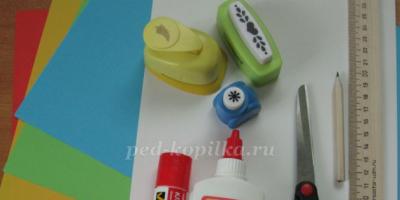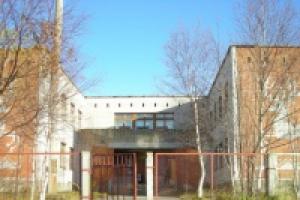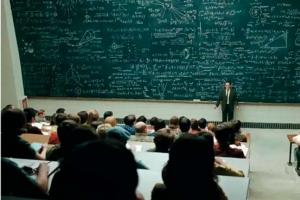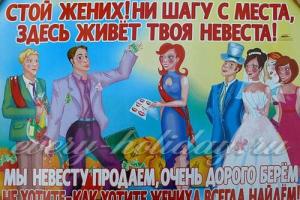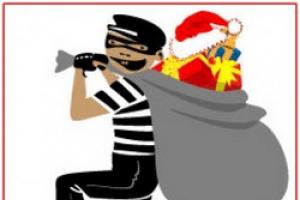Irina Vinogradova
Presentation "Moral and patriotic education of preschoolers"
Currently before preschool educational institutions, the problem of civil and patriotic education the younger generation, since inheritance moral, patriotic values of the family, native land at the most tender age - there is the most natural, and therefore the right way civil-patriotic education, the formation of a feeling of love for their land, for the Motherland. The problem of civic-patriotic education V modern world relevant. The state program "Patriotic upbringing citizens Russian Federation aimed at all social strata and age groups citizens of Russia. Meanwhile, there is an ongoing debate in the media about whether cultivate love for the motherland. But if we do not teach a child to love his country: its forests, seas, lakes, mountains, historical monuments, in a word, man-made and natural wonders, then who will need it? Who will rejoice in her achievements, and hurt her sorrows. The fate of the Motherland is in the hands of man. Motherland is what we make it ourselves. The desire to preserve and increase historical and natural wealth is the goal education of love for the motherland, upbringing patriots of their Fatherland.
Related publications:
 For more effective work on the education of patriotism of preschoolers, the following are necessary: pedagogical conditions: - heuristic environment c.
For more effective work on the education of patriotism of preschoolers, the following are necessary: pedagogical conditions: - heuristic environment c.
Seminar for teachers "Moral and patriotic education of preschoolers"- Good afternoon, dear colleagues! To create a favorable environment and good-natured mood, I suggest you turn to the right, smile,.
Project "Patriotic education in the preschool educational institution" Educator: Petrik Elena Ivanovna MBDOU kindergarten No. 2 "Ryabinushka", Polessk
The project is long-term, multi-project, group, research and creative. Project participants: Children, parents, group educators. Relevance of the topic: The problem of patriotic education of the younger generation is one of the most urgent today. In recent decades, many complex, controversial events have taken place in our country in public life, politics, and in the system of state and local government. It is safe to say that in connection with this, the younger generation is experiencing a drop in interest and respect for the past of Russia. Therefore, at the present stage, the problem of moral and patriotic education of children is so relevant. Patriotic education of preschool children is a process of mastering and inheriting traditional national culture. The basis for the formation of patriotism is the deep feelings of love and affection for one's culture, one's people, one's land.
Purpose: Education of a citizen and patriot of their country, the formation of moral values. Creation in children's institution subject-developing environment conducive to this education. Tasks - the formation of a spiritual and moral attitude and a sense of belonging to the home, family, kindergarten, city; - development of interest in Russian folk art, crafts, traditions and customs of Russian people; - expansion of ideas about home country, its capital, cities; - acquaintance of children with state symbols: coat of arms, flag, anthem; - acquaintance with the historical past of Russia; - development of elementary knowledge about human rights; - development of a sense of responsibility and pride for the achievements of the Motherland; - the formation of tolerance, a sense of respect and sympathy for other people, peoples, their traditions; - upbringing respectful attitude to the older generation, WWII veterans; - education of aesthetically moral norms of behavior and moral qualities of the child.
activities within the framework of the project: competition of patriotic corners
Creation of the mini-museum "Our Polessk"
Excursion to the museum in Ilyichevka
Excursion to the museum in Ilyichevka
Excursion to the museum in Ilyichevka
Excursions to the Labiau Museum, Ince Theatre, Puppet Museum
Excursion to the Museum of the World Ocean
Creating an art gallery
Creating an art gallery
Creating an art gallery
Creating a family coat of arms
Take care of the planet!
Work on the project continues. Thank you for your attention!
Patriotic parenting preschool age through acquaintance with the small Motherland
Tonkonog Lyudmila Nikolaevna, senior teacher of the Municipal Budgetary Preschool Educational Institution "Kindergarten" Lastochka "s. New Garden» Simferopolsky District of the Republic of CrimeaMaterial Description: I offer an article from the experience of our kindergarten in patriotic education preschoolers, which describes the forms of work that are accessible and interesting for children and teachers. This material can be used as a consultation for teachers and a speech at a parent-teacher meeting.
The article is accompanied by a presentation.
Target: the formation of the foundations of patriotism among preschoolers through familiarization with the small Motherland
Tasks:
- to cultivate love for the native land, emphasizing that the place where each of us lives is part of a large country
- to form a reverent attitude and pride in their small homeland
-to develop children's interest in studying the history, nature, culture of their native land
SLIDE 1. Title.
SLIDE 2 The feeling of patriotism does not arise by itself, it must be laid from early childhood, its formation is a complex, purposeful, long process.
SLIDE 3. Love for the Motherland begins with love for what surrounds the child from childhood - the place where he was born, his family, his village - with love for his small Motherland. A big Motherland always starts with a small one.
And the small Motherland is a part of the big one. And only having learned to love your small homeland, you can talk about love for your people and about patriotism.
SLIDE 4. Due to their still poor life experience, it is difficult for preschool children to imagine our country as a whole, so we begin our acquaintance with it from what surrounds them.
We need to teach children to love what is familiar and understandable to them, close and dear - our kindergarten, the village in which it is located, the people who work here.
To teach to feel the beauty of the native land, the beauty of a person living on this land, to cultivate love for their native places, for everything that surrounds a child from childhood is one of our main tasks.
We are trying to convey to them that every corner of our country has unique features of culture and nature, and every person loves his native land, and the place where our kindergarten is located is also unique.
SLIDE 5. And in order to love your small homeland, you need to know it.
To acquaint children with their native village, teachers of the preschool educational institution developed a summary of the lesson “My New Garden”, during which children learn the history of the village, its names, about the people, thanks to whose work we grow trees and shrubs from different countries, new varieties of fruit trees and ornamental shrubs are being developed.
The selected material makes it possible to form in children an idea of what is famous and unique for their native land, causes a feeling of pride in it.
SLIDE 6. Of great importance in the patriotic education of children is their active work, since being a patriot is not only knowing and loving your country, but also actively acting for its benefit.
In kindergarten, we held an environmental campaign "Plant a tree".
By planting trees and shrubs, the children themselves came close to creating the unique beauty of their village and kindergarten. And now they take care of the plants they planted themselves with pride and pleasure.
SLIDE 7. One of the components of patriotism is the upbringing of love for native nature on walks and excursions.
Our children have the opportunity to see the beauty of their native land during excursions to the arboretum - a unique place where various types of rare plants grow, including those listed in the Red Book.
SLIDE 8. When acquainting a child with his native land, the most important task is that it is necessary to select from a large number impressions received by a preschooler, those that are most accessible to him, cause positive emotions, a response in his soul.
In our village, new types of tulips are being bred. In the spring, when they bloom, we go on an excursion to admire this unique beauty. After the walks, we organize photo exhibitions. The vivid emotions that children receive after excursions to such places remain with them for a long time.
Gradually, children form an idea of their native village, nature becomes closer and clearer, children try to do something for it, feel a sense of responsibility towards it and a sense of pride in their small homeland.
SLIDE 9. Without bringing children closer to the history and life of their homeland, it is impossible to solve problems moral development preschoolers. The education of patriotism is possible when they have knowledge about the history of their country, the place where they live.
SLIDE 10. Children study the heroic history of the village from its monuments, learn about the exploits of their fellow countrymen with the help of virtual excursions.
The use of such material to highlight issues of history allows the teacher to more convincingly and more clearly influence the formation of a citizen. Children have a feeling of involvement in the events that took place in our country, our village, because the participants in these events were our countrymen, and sometimes acquaintances and relatives.
SLIDE 11. Patriotic education on the examples of the courage and heroism of the Soviet people in the years of formidable great trials gives a positive result, arming children with knowledge of our history.
And when children become direct participants in the preparation and celebration of such dates as Victory Day, the Liberation Day of the village, they visit places of military glory, which they already have an idea of from virtual excursions. It is the inclusion of children in such socially significant activities that allows them to feel like a part of the Great People, they develop love for their native land, the Motherland.
SLIDE 12. I. G. Ehrenburg wrote: “In order for patriotism to be strong, unshakable, it must come from love for one’s small homeland - one’s native city, native nature, village, region.”
Patriotic feelings are laid down in the course of a person's life, who is within the framework of a specific social cultural environment. From the moment of birth, a child naturally gets used to his environment, nature and culture.
The world enters the life of children gradually. Our task is to show this world to a child in such a way that he will love it, to help the child see the beauty and uniqueness of the place where he was born and takes his first steps.
First, the child learns what surrounds him at home. Over time, his life experience is enriched, and he recognizes the kindergarten, the street on which he lives, the village, his entire vast country, knowledge expands and improves, while developing into a single image and ideas about the Motherland.
SLIDE 13. The upbringing of patriotic feelings in children is a complex and lengthy process, and we think that we were able to sprout the first shoots of patriotism, which in the future will turn into great love for our country, our people, our Motherland.
Presentation on the topic: Patriotic education of preschoolers through acquaintance with the small Motherland
In my group, based on analysis, monitoring and individual work with children and their parents, I identified a problem: children have superficial knowledge about their native country, their region, region, about the Motherland as a whole; parents do not pay due attention to the problem of patriotic education of preschoolers. Therefore, I consider the main direction in working with children on patriotic education to be the education of patriotism among preschoolers as the most important spiritual, moral and social value through the education of love for their native city, region, country.
IN last years there is a rethinking of the essence of patriotic education: the idea of educating patriotism and citizenship, acquiring an increasing social significance, is becoming a task of national importance. Raising patriotic feelings in preschool children is one of the tasks moral education, which includes the upbringing of love for loved ones, for kindergarten, for home, for native street, for native city and native country. The formation of love for the motherland among preschoolers from an early period is the stage of their accumulation of social experience of life in the conditions of a small motherland, the assimilation of accepted norms of behavior, relationships, familiarization with the world of their native culture. Therefore, patriotic education from preschool age is the only true way of successful early socialization of the individual, the formation of a stable connection between generations and ensuring the connection of a person with his native roots, his love for the fatherland, which begins with a conscious and responsible attitude to the small homeland.


To establish interaction between the family and the preschool educational institution on the formation of moral and patriotic feelings in children; To promote the upbringing in the child of love and affection for the family, home, kindergarten, native street, city; To promote the formation of a caring attitude towards nature and all living things; To promote the development of tolerance, a sense of respect and sympathy for other people.


My work is based on the hypothesis that the process of moral and patriotic education of preschool children will be more effective if game, verbal, visual, excursion and innovative methods are used. educational work.

When selecting methods for the implementation of the goals and objectives, I studied the following methodological scientific literature: “Patriotic education of preschoolers” by N. V. Aleshina, “Patriotic education of children 4-6 years old” by N. G. Komratova, “How does the Motherland begin?” L. A. Kondrykinskaya, “My Country” by V. I. Natarova, “Moral and Patriotic Education of Preschoolers” by N. D. Makhaneva

Methodological support is reflected in photographs, albums and special literature (fiction and reference information). All this material enriches the children's understanding of the small Motherland. There are maps, booklets, diagrams, images of the symbols of Russia, the Altai Territory, the city of Barnaul.


The leading pedagogical idea is to accompany preschool children on the way to the formation of citizenship and patriotism, the formation and development of the competencies necessary for the successful socialization of the growing personality in the conditions of a small homeland (hometown).


My family. Members of my family. Our names and surnames. parental home. My dad is a defender of the Fatherland. My mom. Professions of parents. We are helpers Our kindergarten. Our group. Hometown. My native land. The nature of the edge. Cultural heritage. Historical monuments. Russia is my motherland. Moscow is capital of Russia. Coat of arms, flag, anthem. To live is to serve the motherland. Our grandfathers wear medals.

The feeling of love for the motherland is acquired independently and experienced individually. The task of adults, both teachers and parents, is to awaken this feeling in the child, namely to awaken, and not to impose. And for this, it is necessary to adhere to the following principles when organizing the educational process: The principle of activity and independence The principle of differentiation The principle of historicism The principle of visibility The principle of humanization The principle of individual-personal orientation The principle of integrativity The principle of stages The principle of communication The principle of success The principle of cognitive expressiveness Positive centrism

The intensive change in the surrounding life, the active penetration of scientific and technological progress into all its spheres dictate to the teacher the need to choose more effective means education and training require qualitatively new approaches, the use of new technologies in educational - educational process. In my work on the topic, along with the traditional ones, I use innovative forms of work:




Creation of a subject-developing environment of the group; - Development of a methodical piggy bank; -Development and implementation of long-term planning of work with children; -Development and implementation of a plan for successive relations with social institutions (Children's Library 22, MBOU KSh "Barnaul Cadet Corps" 90, Puppet show"Fairy Tale", Russian Chamber Orchestra of Barnaul, etc.)

Conducting excursions with the participation of parents and children; - "Days of open doors" - Organization non-traditional forms work with parents (club "Young parents", "round table") - Involvement of parents and children in project activities on the topic; -Participation of children and parents in competitive activities at various levels; - Holding holidays and joint leisure activities.

Use of ICT technologies; - Conducting excursions; -Visiting social institutions within the framework of successive ties; -Organization of exhibitions, concerts, competitions, leisure activities. -Implementation of direct educational activities in accordance with the Federal State Educational Standards.



Conducting excursions with the participation of parents; - Conversations - consultations; - "Days of open doors" - Organization of non-traditional forms of work with parents (club "Young parents", "round table") - Involvement of parents in project activities on the topic; -Participation of parents in competitive activities in preschool educational institutions; - Holding holidays and joint leisure activities; -Questioning -Visual - informational material.


I distribute the experience of work within the preschool educational institution, at the city, interregional and all-Russian level: - Teachers' councils; -Consultations; -Open demonstration events for young teachers; - Demonstration events for students of BGPC 1; -Participation in competitive activities -of different levels.

Systematic and systematic work on the education of patriotic feelings in children contributed to the enrichment of the knowledge of preschoolers. Children learned a lot about our region, about its sights, about the customs and traditions of the Altai Territory and Russia. Replenishment of the active and passive vocabulary of children contributed to the formation of visual figurative thinking children. In play and work, friendly relations between children have improved, and the system of relations between children and parents has been enriched. I hope that the knowledge gained in kindergarten will be useful to the children in their later life.

This work experience can be disseminated among preschool educational institutions. There is a methodological support: -Forward planning work with children; - Methodical piggy bank: abstracts, visual and illustrative material, file cabinets, didactic games, teaching aids, multimedia presentations, literature.

Difficulties in the implementation of work on moral and patriotic education of preschool children arise on the part of parents, because due to the current workload, they do not always have the opportunity to take part in the activities carried out by me on the basis of a preschool institution. As a result, parents cannot fully apply their experience and knowledge in the process of moral and patriotic education of their children.

1. Patriotic education in the preschool educational institution./Authors-compilers E.Yu. Alexandrov's system and others - Volgograd: ed. "Teacher", Aleshina N.V. Familiarization of preschoolers with the surrounding and social reality. - M.: TsGL, Aleshina N.V. Patriotic education of preschoolers.: CGL, Aleshina N.V. Acquaintance of preschoolers with their native city and country (patriotic education) O.V., Shcherbakova I.A. – M.: ARKTI, My country. rebirth national culture and education of moral and patriotic feelings. A practical guide for educators and methodologists of preschool educational institutions // ed. comp. Natarova V.I. etc. - Voronezh: TC "Teacher", 2005.

7. Where does the Motherland begin. Experience in patriotic education in the preschool educational institution / ed. L.A. Kondrykinskaya. - M .: TC "Sphere", The system of patriotic education in preschool educational institutions: planning, pedagogical projects, development of thematic classes and event scenarios / ed.- comp. Alexandrova E.Yu. and others - Volgograd: Teacher, 2007.

slide 1
The development of social and personal qualities of preschoolers through patriotic education MBDOU kindergarten No. 45 "Yagodka" of a general developmental type with priority implementation of activities in the social and personal direction of development of children "Where does the Motherland begin?" The work was completed by: teacher Ivanova E.M. website
slide 2
Patriotism - love for the Motherland, devotion to it, responsibility and pride for it, the desire to work for its benefit, protect and increase its wealth - begins to form already at preschool age. One cannot be a patriot without feeling a personal connection with the Motherland, without knowing how our ancestors, our fathers and grandfathers loved and cherished it. Already in kindergarten, as a result of long-term, systematic, purposeful educational work, elements of citizenship and patriotism can be formed in children. The love of a preschool child for the Motherland begins with love for his relatives, his home, kindergarten, city. After all, vivid impressions about the native nature, about the history of the native land, received in childhood, remain in the memory of a person for life.
slide 3
Relevance of the problem The problem of patriotic education of the younger generation is one of the most important today. Children, starting from preschool age, suffer from a lack of knowledge about their native city, country, and the peculiarities of Russian traditions. Indifferently relate to close people, comrades in the group. They experience a lack of sympathy and compassion for the grief of others. The system of work with parents on the problem of moral and patriotic education has not been sufficiently formed.
slide 4
Tasks that solve these problems To increase the educational, professional, theoretical and practical knowledge of teachers on the problem of moral and patriotic education of preschool children. To systematize the knowledge and skills of teachers and children on this issue. To develop in a child of senior preschool age social and personal qualities such as compassion, sympathy, feeling dignity and awareness of oneself as a part of the surrounding world. To help parents develop and maintain the curiosity of children in the process of joint activities.
slide 5
Forms of work with children on civic-patriotic education: Targeted walks to the monuments of military glory, along the streets named after the heroes of the Great Patriotic War; Excursions to memorable places. The content of such excursions are: observation of ritual moments (laying flowers at the monument, a minute of silence, meeting with participants in the war). The same excursion is carried out with the participation of parents. They are offered a "Weekend Route" with detailed description visited object and recommendations for accessible familiarization of the child with the monument. Reading fiction, corresponding to the age category of children - about the defenders of their native land, the Fatherland. Parents are given recommendations for visiting district libraries with their children. The use of audio and video equipment for listening to musical works about the Motherland, showing children films about the exploits of the Russian people.
slide 6
Examination of illustrations, paintings, reproductions and newspaper clippings containing historical facts and events from the surrounding life. Meetings with participants of the Great Patriotic War and labor veterans, participation in public holidays: "City Day", "Mother's Day", " Dad's holiday”, “Victory Day”, etc. Preparation of thematic exhibitions dedicated to anniversaries, making souvenirs for war and labor veterans. Creation of mini-museums of military and labor glory, defenders of the fatherland, the theater of Russian Costume. Carrying out actions: “Feed the birds in winter”, “Green Patrol”, “Greening the territory of the kindergarten”. Equipping the subject-developing environment of the kindergarten group: making attributes for the games "Border Guards", "Sailors", "Cosmonauts", etc. production of paraphernalia of state symbols of Russia, the city; album design: "Sights of our city", "My family", "It's good in our garden", etc. Creation of the newspaper: “My sports family”, “The sun rises in the morning, calls me to kindergarten”.
Slide 7
Success in patriotic education can only be achieved if the educator himself knows and loves the history of his country, his people. He must be able to select the knowledge that will be available to preschool children, something that can cause feelings of delight and pride in children. But no knowledge will give a positive result if the educator himself does not admire his country, his city. “In education, everything should be based on the personality of the educator, because the educational power flows only from the living source of the human personality. No statutes and programs, no artificial organism of the institution, no matter how cunningly invented, can replace the individual in the work of the educator. K. D. Ushinsky.
Slide 8
Acquaintance of preschoolers with their native city, with its sights. Topics are more complex, requiring explanation, interpretation. The work takes place outside of classes - targeted walks, excursions, since it is impossible to recognize and fall in love with the city only from illustrations.
Slide 9
Acquaintance of preschoolers with the heroes of the Great Patriotic War, with the monuments of the city and the region. The work takes place outside of classes - a targeted walk to the monuments of military glory.
Slide 10
slide 11
Acquaintance of preschoolers with the history of Russia. "Visiting Santa Claus" “The carol has come - open the gate!” Work on patriotic education takes place in the classroom, at entertainment, at matinees. "Defender of the Fatherland Day".

